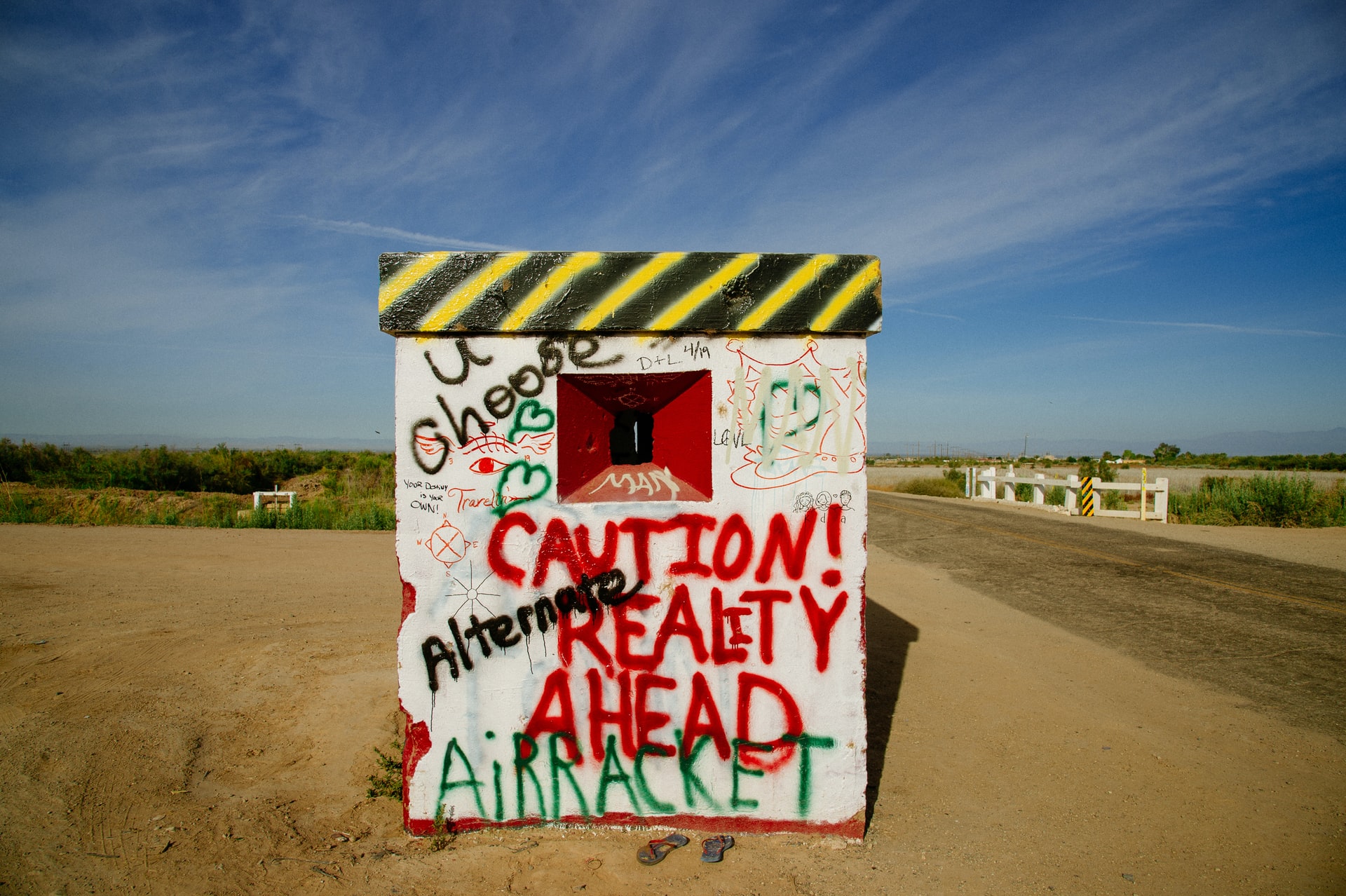The Big Lie

This Dvar Torah for Parashat Shelach was written by Orot Center for New Jewish Learning co-founder and Covenant Award winner, Jane Shapiro.

Photo by Donald Giannatti on Unsplash
Twelve scouts are asked to go stealthily into the Land of Israel and look around. They return with samples of its rich produce: clusters of grapes, pomegranates, and figs and set them down in front of Moses and Aaron and the assembly.
And then, instead of describing all that they had seen, an alternative reality is delivered as described in B’Midbar / Numbers 13:26-33:
They [the scouts] went straight to Moses and Aaron and the whole Israelite community… and made their report to them...
“We came to the land you sent us to; it does indeed flow with milk and honey, and this is its fruit. However, the people who inhabit the country are powerful, and the cities are fortified and very large…
Caleb [one of the scouts] hushed the people before Moses and said, “Let us by all means go up, and we shall gain possession of it, for we shall surely overcome it.”
But the other men who had gone up with him said, “We cannot attack that people, for it is stronger than we.”
Thus they spread calumnies [lies] among the Israelites about the land they had scouted, saying, “The country that we traversed and scouted is one that devours its settlers. All the people that we saw in it are of great size; we saw the Nephilim and we looked like grasshoppers to ourselves, and so we must have looked to them.
Chaos and Irrational thinking ensue, continued in B’Midbar / Numbers 14:1- 4:
The whole community broke into loud cries, and the people wept that night.
All the Israelites railed against Moses and Aaron. “If only we had died in the land of Egypt,” the whole community shouted at them, “or if only we might die in this wilderness!... It would be better for us to go back to Egypt! And they said to one another, “Let us head back for Egypt.”
From the depths of this despair, the people have set themselves on a path that can only lead to sin, judgment, and punishment.
The people so quick to believe the big lie are condemned to die away in the sands of the desert. Their belief in the lie prevents them from completing the journey.
How does this occur?
How does something so apparently straightforward go so astray?
Rashi tells us: “A lie that does not begin with a little bit of truth will not stand up.”
The land indeed was flowing with milk and honey. But the language they use to describe the inhabitants shows lack of resolve and confidence. ‘They are huge (“Anakim”) and you might fall before them (Nephilim), while we are puny grasshoppers.’ And yet this is not a satisfying interpretation.
How do lies become so viral and so toxic? Why are humans so ready to believe such a big lie?
In her book The Extended Mind: The Power of Thinking Outside the Brain, Annie Murphy Paul writes about “socially distributed cognition” a phenomenon where people think with the minds of others.
This is a positive spin on what has also been called group mind.
Since the 19th century, theorists have tried to explain why crowds turn into mobs, and why groups create rules based on false evidence. At some level, it seems, our brains are wired for synchrony with other brains.
In a positive way, however, when a group of people focus on the same pieces of information at the same time, this “shared attention” helps everyone remember that information better. Scientists call this cognitive prioritization.
"In a world of too much information, we use shared attention to help us figure out what to focus on, then direct our mental resources toward the object that the spotlight of shared attention has illuminated. As a result of these processes, we learn things better when we attend to them with other people. We remember things better when we attend to them with other people. And we’re more likely to act upon information that has been attended to along with other people." ~ The Extended Mind p. 222
Applying these ideas to the Torah opens up a few possibilities.
First, Sinai was more effective as a learning experience because it occurred in a group.
Second, the Book of B’Midbar, which is full of lists and rosters and events recounting the bad effects of group think, identified as collective sin in the language of the Torah, finds a positive counterbalance in the appointment of other leaders, judges, chieftains and sister groups who use socially distributed cognition to lead, prophesy and make creative change in the law.
These are often in counterpoint to Moses and Aaron who try to hold all the decision-making between themselves, often to their peril and loss. Watch for the rebuke of Korah in this regard.
B’Midbar could be read as a series of studies in how the people are learning and adapting and innovating to meet new situations which they will need to sustain the community.
There is caution against falling under the spell of a big lie but also with remedies embedded within.
Shabbat Shalom




